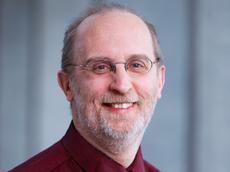Science-literate Switzerland
Donald Hilvert researches enzyme mechanisms with the goal of engineering protein catalysts to drive reactions faster than those found in Nature. He considers Switzerland to be the most science-literate country in the world.

What do
you consider to be chemistry’s greatest achievement or most important
discovery?
Chemicals
and chemistry compose every material object and process on this planet. In that all that exists on Earth is made up
of chemicals, life itself might be termed chemistry’s greatest
achievement. In tighter focus, a
watershed accomplishment would be elucidation of the structure of DNA and the
means by which genetic information is encoded and decoded – though illustrious
colleagues in other branches of chemistry may well favor other breakthroughs.
What do
you focus on in your research and what aspects of it are evident or usable in
everyday life?
Our
group studies enzyme mechanisms with the goal of engineering protein catalysts
to drive reactions faster or more selectively than those found in Nature. For
many reactions of interest, natural catalysts may even be unknown. Examples of enzymatic applications to
everyday life range from therapies for heart attack victims to meat
tenderizers, stain removal from clothing, and, in a case beloved of
Switzerland, cheese making.
Have you
got a role model in chemistry? If so, who and why this person?
The
great German scientist Emil Fischer, father of chemical biology, came to many
key realizations by drawing on inspired reasoning and pure logic in addition to
observation and experiments. He is still
a towering figure in science. Interestingly, his autobiography tells us his father sent him to
university because he felt young Fischer was too stupid to succeed in the
family lumber business.
How will
your research field develop? Where does the potential lie?
Chemistry,
allied with biological methods and computational tools will make it
increasingly possible to create particular, specially tailored catalysts
rivalling the speed, selectivity, and efficiency of natural enzymes. The field will continue to evolve fast and
far beyond what is realizable today.
What term from chemistry should everyone know by the
end of the International Year of Chemistry and why?
It is not important to know a particular term. In fact
it is all about understanding the concepts and tasks of chemistry. I was born
in America, and I can only praise the Swiss in this regard. I wish all
the world were as science-literate, informed, and knowledgeable as Switzerland. I would urge only: weiter so!







READER COMMENTS